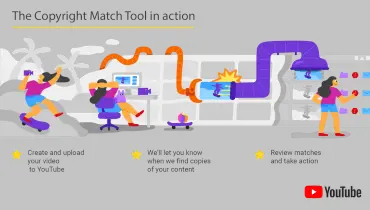7 Credit Cards Myths and Misconception to Ignore

Nowadays, everyone seems to have a credit card and people hardly carry cash at all. Aside from being safer to carry than carrying cash, credit cards also offer you additional benefits such as allowing you to earn points, bonus miles, and cash back on your purchases.
Moreover, obtaining a credit card is relatively simple these days. You can simply fire up your computer and apply for a credit card online, and have it activated in a matter of minutes.
However, there are many myths and misconceptions about credit cards floating around that you should ignore:
Misconception #1: Paying the bare minimum each month is sufficient.
This has become a widespread misconception, and yet many consumers still hold it to be true. Users can avoid the fee for late payments by simply repaying just the lowest amount required each month.
According to the policies and rules of said cards, interest would be applied to the sum that is still owed. It's important to understand that a certain charge is determined based on the relevant date. If users aren't diligent, their remaining balance due could increase, leaving you with a sizable bill that could be challenging to wipe off.
Avoidthat and constantly make full repayment. Otherwise, make EMIs (equated monthly installments) out of your remaining balance. Which should enable users to make a set monthly payment in accordance with their budget.
Misconception #2: It's wise to close a card once you have fully paid it off.
Another common myth that can seriously affect a person is the idea that shutting down a credit card with a poor repayment history will improve their credit score.
In reality, canceling a credit card will reduce your current credit limit and erase your credit history. Your credit score and credit history will be checked by every issuer and bank to determine if you are a secure choice or not, so possessing a lengthier credit history can be advantageous in numerous ways.
On the other hand, having very little or no credit history might not appear to be a good sign.
Misconception #3: Avoid choosing a card with an annual or renewal charge.
It may seem appealing to get a credit card with no annual or renewal fees, but this is not always the best course of action.
Nil annual or renewal charge credit cards, sometimes known as free credit cards, frequently don't offer exceptional discounts and reward programmes like most credit cards do that come with some joining and renewal fee; instead, they give their members the bare minimum.
If you want a credit card that rewards you for your purchases and offers you exceptional deals, the smart move would be to choose a premium credit card. These cards may have annual fees, but the benefits they provide more than make up for that cost.
If still you decide against getting a credit card with an annual charge, keep in mind that many credit cards waive the fee if you go above a set amount of money that they have set as the threshold.
Misconception #4: A high credit limit is not a wise choice.
Many individuals believe that raising your credit limit or having a large credit limit is a bad idea. They believe that having a large credit limit will cause them to spend more and it will ultimately trap them in a debt cycle. This is not a true statement, though.
Users must realize that, when properly utilized, a higher credit limit can both strengthen their financial situation as well as support them in times of emergency. A higher credit limit will lower their credit utilization ratio, which will eventually raise their credit rating. And in the end, it all boils down to how financially organized you are.
Misconception #5: To establish credit, users must keep a balance on their credit card.
This is another fallacy that could seriously harm individuals. In order to build good credit, it is not necessary to maintain a balance. Paying your monthly bills on time and in full will help you increase your credit score.
You have to pay interest on the remaining balance, therefore, users would pay the charge if they carry a monthly balance. Paying their bills on schedule and completely each month is crucial. Whenever possible, strive to eliminate having a balance.
Misconception #6: All in all, if I completely settle my credit card repayments, it doesn't matter if I pay my debts late.
It does matter. Even if users settle off their credit card in whole, failing to make a payment or making a late payment will harm their credit rating.
If users frequently stay behind in making their payments, this may not be deemed to be an excellent credit behavior. In addition, customers would be billed a delayed repayment penalty plus interest.
Should you find it challenging to remember to make your regular and timely ;payments, set an alert on your phone or planner. Most banks even provide an auto-debit function to assist you in making timely payments.
Misconception #7: Possessing numerous credit cards negatively impacts your credit score.
Having different credit cards is not a bad thing. Some would even argue it is ideal to have different credit cards that can help you in different situations and categories.
If you are consistent and disciplined enough to manage numerous credit cards, it can prove to be very beneficial. This is because different credit cards offer different kinds of benefits and each is unique in its own way.
When people have numerous credit cards from several lenders, they boost their probability of receiving a variety of offers and discounts through top companies and shopping stores.
In Conclusion
While you should be cautious when handling credit cards, you should not believe every myth you come across. Credit cards can become a great financial help when you need it. However, if you are not disciplined with the card, it can cost you a pretty penny.




















